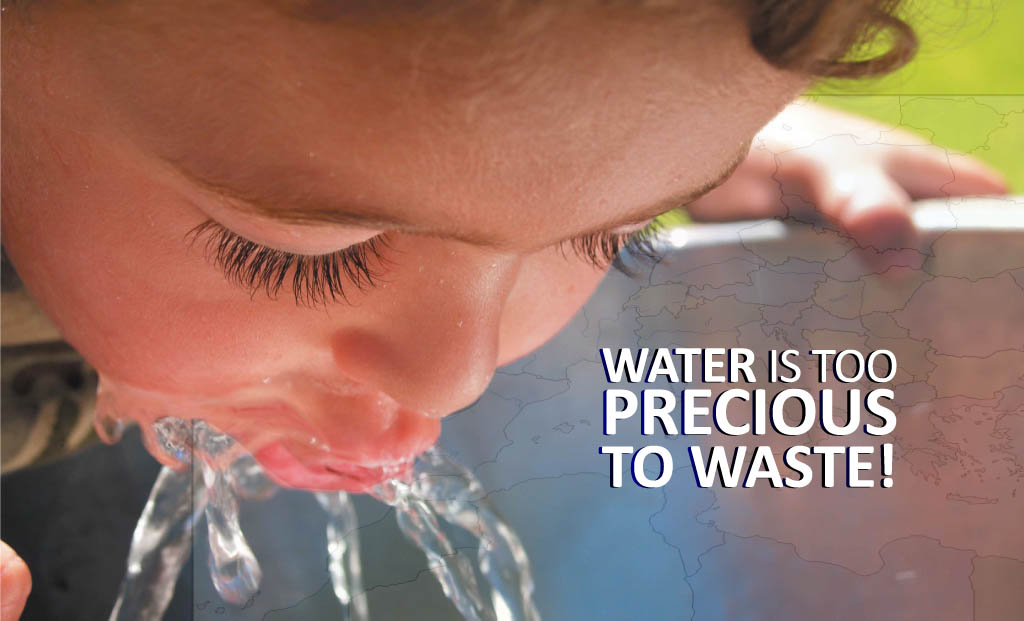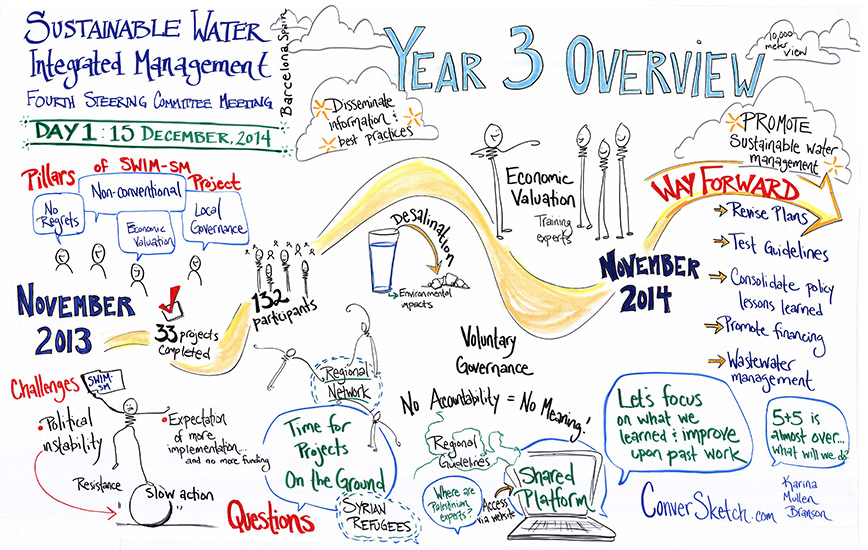A study carried out in the framework of SWIM-SM is intended to provide guidance to stakeholders at the national level on how to review their water plans and integrate no-regret actions in order to facilitate their adaptation to potential climate change conditions.
The study identifies the level of integration of adaptation actions in their plans and proposes some major steps to mainstream adaptation measures into these plans, with focus on no-regret actions.
A survey, realized in the framework of the study, reveals that the water-related legislations in the region are often inadequate, technically inappropriate and/or economically unaffordable, and they are not effectively enforced. Stakeholders’ involvement and participatory management approaches have been facing many constraints and challenges in the region due to lack of coordination amongst major water-related institutions.
Four major steps to mainstream climate change adaptation measures into IWRM plans, with focus on no-regret actions, are described in the study as follows:
1-A situational analysis of the policy and legislative framework,
2-Creating an enabling environment,
3-Planning and policy structures and finally
4-Developing institutional structures conducive to mainstreaming climate change adaptation into IWRM.
Finally it was also suggested that a Strategic Environmental Assessment (SEA) study supports mainstreaming/introducing climate change considerations into sectorial policies.




